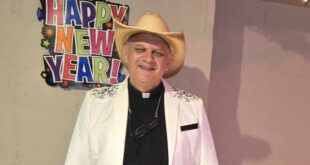As we are all painfully aware, life happens and life changes. The matters we discussed with our doctor at age 35 are quite different from the matters we discuss with our doctor at age 75. So too it is with your estate plan. Simply put, the estate plan that you created for yourself at age 35 should be substantially different than the estate plan you need at age 75.
How so, you ask? There are three phases to planning for life and three types of planning to address those phases.
TODAY (planning for the maturing years) — Estate planning, asset protection planning, tax planning
THE GAP (planning for the senior years) — Senior estate planning, long-term care planning
DEATH (planning for the post-death years) — Post-death estate, trust and probate administration
If you already have done a traditional estate plan, it is very likely that as you approach retirement age, your traditional estate plan needs to be modified into what we call a “senior” estate plan.
This is where the GAP in most people’s planning occurs. You see, most traditional estate plans provide for death only, but as we have seen with many of our friends and family, life is not always predictable.
For example, between now, when all is manageable, and the time of our death, there could be a long period of time (a GAP) during which long-term care is needed. It is this period of time, or GAP, that “senior” estate planning deals with in a way which traditional estate planning cannot.
What does this mean for you? It means that you need a “senior” estate plan that will consist of one of the following:
A PRE-PLAN — When you or your spouse have at least five years to protect assets.
A WAIT-AND-SEE PLAN — When there is a recent diagnosis of a debilitating illness where some legal work must be done now, but other legal work can be deferred.
A CRISIS PLAN — When you must immediately have in place all the tools to protect you, your family and your assets from a long-term care spend down crisis either due to the devastating cost of care in your home, assisted living, or a nursing home.
In short, you must consider solutions for that stage of your life during which you require long-term healthcare. It does not matter where you choose to live. And these long-term care concerns are probably not addressed in your existing traditional estate plan at this time.
Until next month, please be well.
For more, call 847-292-1220, e-mail abferraro@abferrarolaw.com or visit www.ABFerraroLaw.com.
 Fra Noi Embrace Your Inner Italian
Fra Noi Embrace Your Inner Italian






